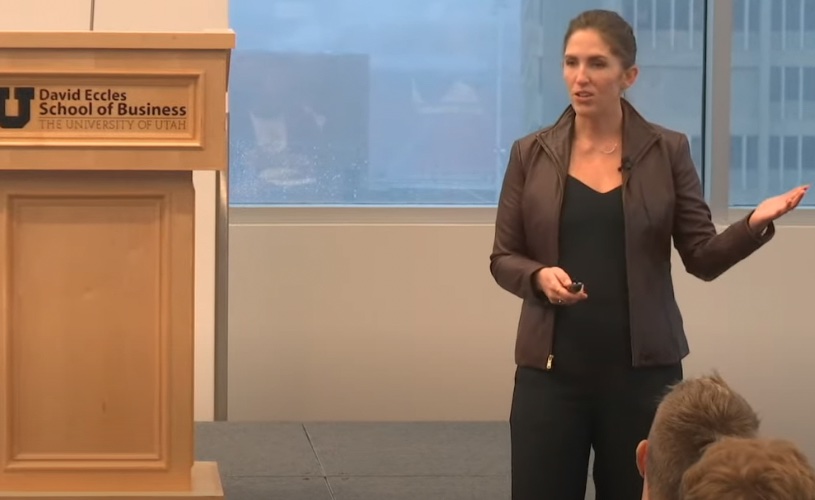at the University of Utah
Professor McKenzie Rees shares how to stay ethical during a negotiation
The Daniels Fund Ethics Initiative and the Ethics Club hosted Kenzie Rees, an assistant professor of organizational behavior and human resources at Brigham Young University to discuss “Being an Ethical Negotiator: The Benefits and How to Get Them.”
During her Nov. 2 presentation to more than 300 students in-person and online, Rees emphasized that everyone engages in negotiations on a nearly daily basis. She defined negotiations as a situation where you are dependent on at least one other person and are working together to solve a problem or come together as a group.
Rees’s research has focused on several aspects of negotiations, including the finding that the subjective outcomes (rather than the objective outcomes) are what make you feel more satisfied with a negotiation. Essentially, valuing maintaining the relationship is more important than “winning” a negotiation by treating someone unfairly or when you don’t stay true to yourself during a negotiation.
However, it is easy to get away from your core values when there is a large incentive to do so presented during a negotiation or when you are feeling particularly competitive with your counterpart. Additionally, it’s easy to turn to a more self-interested mindset, and we often abandon our personal values because we shift to a business frame rather than a personal frame. However, when we shift away from core values, we begin to realize that our behavior is inconsistent with our values, and that leads to feelings of guilt, inauthenticity and other negative emotions.
In order to maintain ethical negotiations, Rees said it is important to:
- Create a plan for what you want in the negotiation
- Understand your goal
- Realize what the minimum is you will be happy with getting
- Consider the other person
- Think about what their goal is and whether it aligns with yours
- Understand what would be harmful, overly opportunistic, or unfair to them
- What you want your relationship to be with them in the long-term.
- Take note of your personal values
- Create a “never do” list
- Be prepared for how you want to answer difficult questions
You can watch Rees’s full presentation here.





